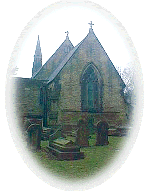Newbold (Derbyshire) - Historical Description, and TodayThis information was collected by Jayne Smith (formerly McHugh), during her “One Place Study” of Newbold. It was previously part of her North West Derbyshire website. NEWBOLD is a pleasant village 1¼ N.W. from Chesterfield, on a considerable
elevation, commanding extensive views over a well wooded and highly cultivated country. At
Little moor in 1842, a small Methodist chapel was erected; the township has extensive coal
and iron mines, and several manufactories of brown earthenware and stoneware bottles; and
contains many scattered hamlets, with wharfs on the canal adjoining Chesterfield. A school
was erected by the freeholders, with the residence for the master, on Newbold Green, in 1805.
Highfield, a neat mansion embowered with trees, one mile N.W. form Chesterfield, is the seat
and property of Bernard Maynard Lucas, Esq. Holme Hall, 1¼ mile W. from Newbold
Green, is the property of J.H. Barker, Esq. Newbold Field, a pleasant mansion, three miles
N.W. from Chesterfield, is the seat and property of Edward Ward Fox, Esq., a minor, and Mrs
Lucy Fox. NEWBOLD: “Before the church of St. John's was built, Newbold was divided
between two other new parishes, St. Thomas, Brampton, and Holy Trinity, Chesterfield.
Before these churches were built, and indeed for all but the last two centuries, Newbold was
part of the huge parish of Chesterfield, served by the church dedicated in the middle ages to
All Saints and since the Reformation jointly to St. Mary and All Saints (the famed Crooked
Spire) that still stands in the heart of the oldest part of Chesterfield.” Compiled by Jayne McHugh. Reproduced with kind permission. |
|
